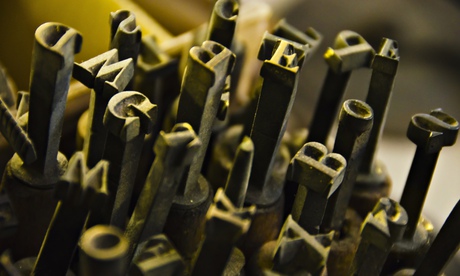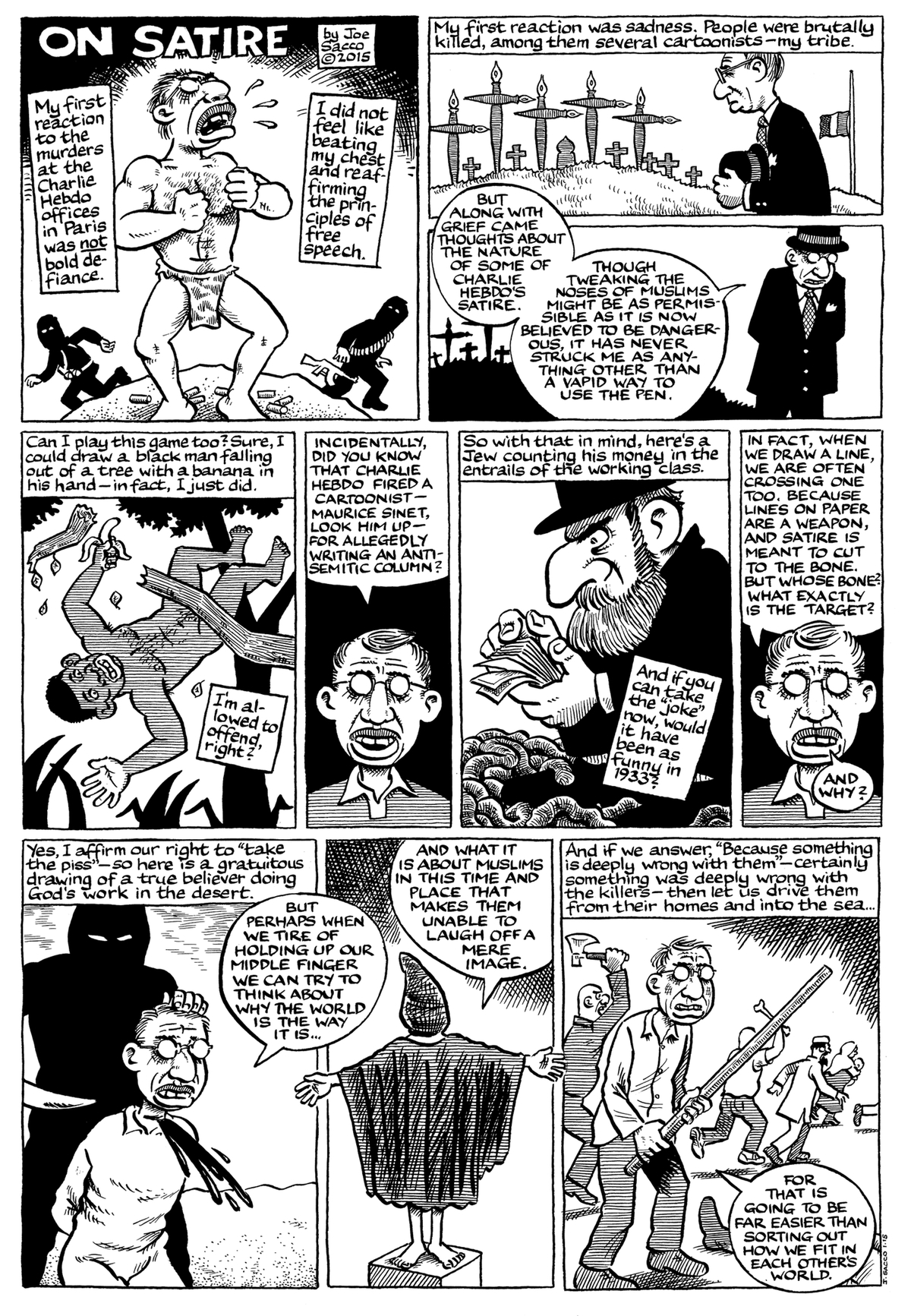'People will forgive you for being wrong, but they will never forgive you for being right - especially if events prove you right while proving them wrong.' Thomas Sowell
Search This Blog
Showing posts with label freedom of speech. Show all posts
Showing posts with label freedom of speech. Show all posts
Sunday, 28 April 2024
Wednesday, 21 February 2024
Saturday, 3 December 2022
Tuesday, 3 February 2015
Monday, 26 January 2015
Tuesday, 1 July 2014
The real enemies of press freedom are in the newsroom
The principal threat to expression comes not from state regulation but from censorship by editors and proprietors

‘A political monoculture afflicts much of the press. Reports that might reveal a different side of the story remain unwritten.' Photograph: Tetra Images/Corbis
Three hundred years of press freedom are at risk, the newspapers cry. The government's proposed press regulator, they warn, threatens their independence. They have a respectable case, when you can extract it from the festoons of sticky humbug. Because of the shocking failures, so far, of self-regulation, I'm marginally in favour of the state solution. But I can also see the dangers.
Those who cry loudest against the regulator, however, recognise only one kind of freedom. In countries such as ours, the principal threat to freedom of expression comes not from government but from within the media. Censorship, in most cases, happens in the newsroom.
No newspaper has been more outspoken about what it calls "a chill over press freedom" than the Daily Mail. Though I agree with almost nothing it says, I would defend its freedom from state censorship as fiercely as I would defend the Guardian's. But, to judge by what it publishes, within the paper there is no freedom at all. There is just one line – echoed throughout its pages – on Europe, social security, state spending, tax, regulation, immigration, sentencing, trade unions and workers' rights. Labour is always too far to the left, even when it stands for nothing at all. Witness the self-defeating headline on Monday: "Red Ed 'won't unveil any policies in case they scare off voters'." Ed is red even when he's grey.
This suggests either that any article offering dissenting views is purged with totalitarian rigour, or general secretary Paul Dacre's terrified minions, knowing what is expected of them, never make such mistakes in the first place.
A similar political monoculture afflicts much of the press. Reports that might reveal a different side of the story remain unwritten. A free market in news is not the same as a free press, unless freedom is defined so narrowly that it refers only to the power of government, rather than to the power of money.
The monomania of the proprietors – or the editors they appoint in their own image – is compounded by an insidious, incestuous culture. The hacking trial revealed a world, as Suzanne Moore notes, of "sleepovers, dinners, flowers and presents ... in which genuine friendship is replaced by nightmare networking". A world in which one prime minister becomes godfather to a proprietor's child and another borrows an editor's horse, and an industry that is supposed to hold power to account brokers a seamless marriage between loot and boot.
On Mount Olympus, the gods pronounce upon issues that afflict only mortals: columnists with private-health plans support the savaging of the NHS; editors who educate their children privately heap praise upon Michael Gove, knowing that their progeny won't suffer his assault on state schools.
It doesn't matter, the defenders of these papers say: there are plenty of outlets, so balance can be found across the spectrum. But the great majority of papers, local as well as national, are owned by exceedingly rich people or their companies, and reflect their views. The owners, in the words of Max Hastings, once editor of the Daily Telegraph, are members of "the rich men's trade union", who "feel an instinctive sympathy for fellow multimillionaires". The field as a whole is unbalanced.
So pervasive are these voices that they seem to dominate even outlets they do not own. As Robert Peston, the BBC's economics editor, said last month, BBC News "is completely obsessed by the agenda set by newspapers ... if we think the Mail and Telegraph will lead with this, we should. It's part of the culture."
An analysis by researchers at Cardiff University found a deep and growing bias in the BBC in favour of bosses and against trade unions: five to one on the 6 o'clock news in 2007; 19 to one in 2012. Coverage of the banking crisis – caused by bankers – was overwhelmingly dominated, another study shows, by interviews with, er, bankers. As a result there was little serious challenge to their demand for bailouts and their resistance to regulation. Mike Berry, who conducted the research, says the BBC "tends to reproduce a Conservative, Eurosceptic, pro-business version of the world".
Last week, a brilliant and popular columnist for the Times, Simon Barnes, was sacked after 32 years. He was told that the paper could no longer afford his wages. But he wondered whether it might have something to do with the fierce campaign he's been waging against the owners of grouse moors, who have been wiping out the rare hen harriers that eat their quarry. It seems at first glance ridiculous: why would someone be sacked for grousing about grouse? But after experiencing the furious seigneurial affront with which a former senior editor at the Times, Magnus Linklater, responded to my enquiries about his 4,000-acre estate in Scotland and his failure to declare this interest while excoriating the RSPB for trying to protect hen harriers, I'm not so sure. This issue is of disproportionate interest to the rich men's trade union.
The two explanations might not be incompatible: if a paper owned by a crabby oligarch wanted to sack people for reasons of economy, it might look first at those engendering complaints among the owner's fellow moguls. The Times has yet to give me a comment.
Over the past few weeks, Private Eye has published several alarming claims about what it sees as censorship by the Telegraph on behalf of its advertisers. It says that extra stars have been added to film reviews, and that a story claiming HSBC had overstated its assets was spiked from on high so as not to offend the companies that pay the rent. The Telegraph told me: "We do not comment on inaccurate pieces from a satirical magazine like Private Eye."
Whatever the truth in these cases may be, it does not take journalists long to learn where the snakes lurk and the ladders begin. As the journalist Hannen Swaffer remarked long ago: "Freedom of the press ... is freedom to print such of the proprietor's prejudices as the advertisers don't object to." Yes, let's fight censorship: of the press and by the press.
Sunday, 29 April 2012
Some Myths Work

UP and Sindh, joined by history, divided by secular democracy
Tahir Mehdi (The writer works for Punjab Lok Suhag, a research and advocacy
group in Pakistan, with an interest in understanding governance and
democracy. He also writes a regular blog in Dawn.com)
The two regions of the subcontinent, Uttar Pradesh in India and Sindh in Pakistan, have both a unique bond and a disconnect. First, the bond: a huge number of Muslims from Uttar Pradesh migrated in 1947 to Sindh. People with Urdu as their mother tongue comprise 21 per cent of Sindh—every fifth inhabitant of Sindh belongs to second or third generation migrants from India, in particular from UP. References to forefathers’ villages, towns or jagirs still moisten many eyes and inspire nostalgia. They all had migrated willingly or unwillingly in pursuit of a peaceful society and prosperity. Their children’s textbooks kept on reminding them over next decades that the cherished dream could never be realised with Hindus roaming around and dominating everything.
The same Uttar Pradesh recently elected members for its 403-seat state assembly. Muslims still live in that province that has a population higher than Pakistan. UP’s population, according to the 2011 census, is 199.6 million. Of these, 19.8 per cent are Muslims. Or, every fifth inhabitant of present-day UP is a Muslim. Muslim candidates were serious contenders for around half of the general assembly seats. In fact, 68 of them went on to become MLAs; 64 Muslims stood second in the constituencies they contested in.
Almost every party fielded Muslim candidates. The Samajwadi Party’s Adil Sheikh defeated assembly speaker Sukhdev Rajbhar, former minister Nand Gopal Gupta was drubbed by SP’s first-timer Haji Parvez Ahmed and four-time BJP winner Inder Dev Singh lost to Mohammad Ghazi. No one cried foul, no allegations of rigging were hurled, no conspiracy theories of undermining Hindutva made the rounds and, above all, no one smelt the infamous ‘foreign hand’ behind the defeat of caste Hindus at the hands of ‘pariah’ Muslims.
The Samajwadi Party raised its tally from 97 (in 2007) to more than a simple majority of 224; the ruling Bahujan Samaj Party crashed from 206 seats to a humble 80. The massive reversal was caused by a four per cent swing in votes, and critics attribute SP’s ascendancy to winning the Muslim vote. Remember that UP is where the capital of Urdu culture, Lucknow, is located; so also the epicentre of Hindutva politics, Ayodhya, and the hometown of secular Indian nationalism (read Congress), Rae Bareli. It’s here that minority Muslim voters have so decisively swung political fortunes. But we were always told that in a democracy where Hindus outnumbered us, we would be forced to live miserable lives on the margins. I was flabbergasted. Does it not turn our history into a farce?
I am not saying that everything is exceptionally bright across the border. People in India too face mammoth challenges—but wait, I think I should not be apologetic about what I want to say and subdue my argument before actually forwarding it, to avoid being labelled unpatriotic. I better say it loud and clear.
Thousands of Hindus migrated from Sindh to India after Partition and are spread all over India. Today, many are prosperous. But, willingly or unwillingly, a few hundred thousand did not migrate. Non-Muslims in Sindh are around 9 per cent of the population, or half the percentage of Muslims in UP. Have you ever heard of a non-Muslim contesting elections and winning too?
They couldn’t even think of such a feat till 2002, when non-Muslims were corralled into reserved seats under the separate electorate system, while Muslim candidates vied for their co-religionists’ votes alone. Two elections ago, we moved to the joint electorate system; since then, only one Hindu candidate for a national assembly seat has polled votes in thousands—Mahesh Kumar, a Pakistan People’s Party nominee. He lost to Arbab Zakaullah of the Pakistan Muslim League by a margin of over a hundred thousand. Rajveer Singh, a Pakistan Muslim League-Functional candidate for the provincial seat of Umerkot, too stood a distant second to the PPP’s Ali Mardan Shah. Dr Daya Ram of the PPP is the only Hindu elected on a provincial seat to date.
That is the disconnect between Sindh and UP. One’s faith in democracy is unwavering, while we have heaped scorn over it for its inability to deliver, and instead have been beating dead horses hoping it would take us to a cherished future. We were told that democracy doesn’t work for us Muslims. It is alien to our culture, and comes to fruition when pollinated by secularism alone, which is heretic. Let me confess today: if being secular means having faith in democracy, I profess it, as I have seen it work miracles.
Subscribe to:
Comments (Atom)

